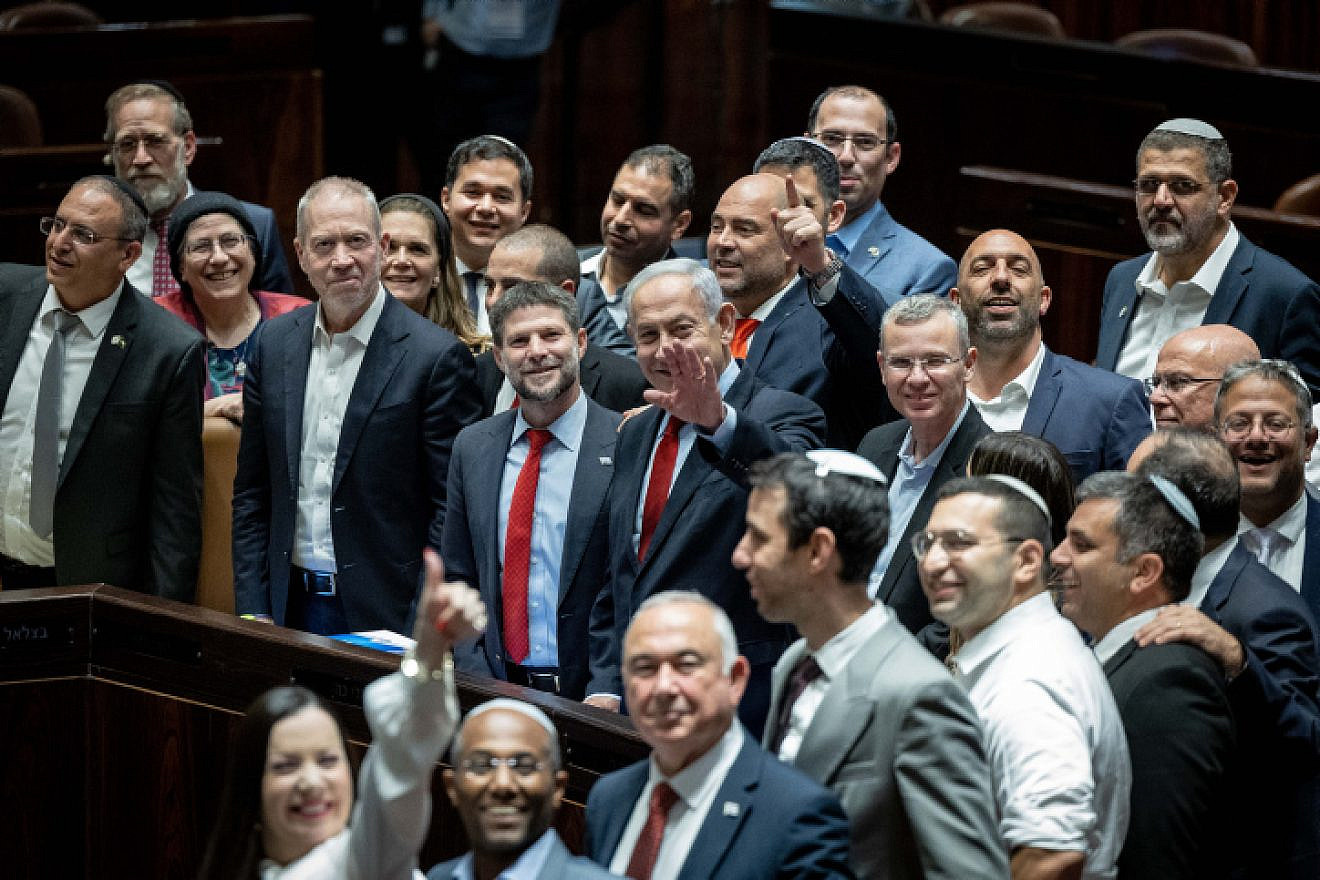Traditionally, one coalition candidate and one opposition candidate are chosen to fill the seats reserved for Knesset members.
 |
Israeli Prime Minister Benjamin Netanyahu,
Ministers and MKs seen after a discussion and a vote on the state budget
at the assembly hall of the Israeli parliament in Jerusalem, May 23,
2023. Photo by Yonatan Sindel/Flash90 |
Israel’s Knesset on Wednesday was holding a tense vote for two spots reserved for lawmakers on the Judicial Selection Committee.
The nine-member panel is responsible for appointing judges at all levels of Israel’s civil court system. Traditionally, one coalition candidate and one opposition candidate are chosen to fill the two seats reserved for lawmakers in the forum.
The opposition had selected as its candidate Yesh Atid MK Karine Elharrar.
The leading candidate for the coalition was Otzma Yehudit MK Yizhak Kroyzer, as Israeli Prime Minister Benjamin Netanyahu had promised a spot on the Judicial Selection Committee to Itamar Ben-Gvir’s party as part of the coalition agreements.
Netanyahu reportedly favors maintaining the status quo, fearing that submitting two coalition candidates, as some coalition partners demanded, would undermine judicial reform talks and reignite mass protests.
In March, the premier froze reform legislation, faced with social unrest and a surprise press conference by his own defense minister, who warned the widening societal rift was a “clear, immediate and tangible threat to Israel’s security.”
Netanyahu had ordered other coalition members vying for the position to withdraw their candidacy ahead of Wednesday’s vote.
Likud MK Tally Gotliv was the only one to refuse out of more than eight candidates that remained in the running Wednesday morning.
As the Judicial Selection Committee vote is by secret ballot, Netanyahu could only ensure that the opposition would win a spot on the committee if only one coalition candidate was put forward.
Netanyahu therefore changed tack and attempted to delay the vote for 30 days by invoking a clause in the Knesset’s protocol, whereby if only two candidates remain in running and one or both are voted down, another vote would be held in a month’s time.
Opposition leader Yair Lapid on Wednesday accused Netanyahu of “crushing Israeli democracy, the economy, security and the unity of the people. He broke his commitment to the president and is causing the talks to end,” according to Channel 12.
National Unity Party leader Benny Gantz also said that his party would quit the ongoing reform negotiations being conducted under the auspices of President Isaac Herzog.
Protest organizers threatened to send thousands into the streets on Wednesday if an opposition candidate wasn’t chosen.
JNS
Source: https://www.jns.org/israel-news/judicial-reform/23/6/14/295081/
No comments:
Post a Comment